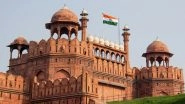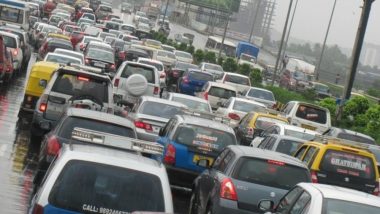Traffic woes in Mumbai is an all-weather problem. But in the recent days, Mumbaikars have been harangued by endless traffic snarls on the roads. So when Greater Mumbai came third in the list of the most liveable city in India, citizens were obviously surprised. The Ease of Living Index was released on Monday, which ranked Pune as the most livable city in India. But Mumbaikars were left in disbelief since commuting in the city has become a legitimate nightmare. While officer goers have their own share of woes, schoolchildren also end up spending an hour more in their school buses due to traffic, according to a Times of India report.
The repercussions of traffic snarls on children can be far-reaching. Being stuck in the snarl, inhaling the pollution and enduring the loud honks of the vehicles can affect the mental and physical well-being of the child. How air pollution can affect health in the metros.
How Traffic Jams Affect Children
Physical Health: Spending long hours inhaling the polluted air can obviously be bad for children. The air is saturated with tailpipe exhaust from vehicles. Studies also say that the inhaling smoke may also cause brain cell injuries, which can interfere with learning and memory.
Recent studies from the Netherlands show that inhaling the fumes for just 30 minutes can intensify the electrical activity in the brain, which can alter behaviour, personality and decision-making. Researchers behind the BREATHE Project found out that harmful invisible particulate matter stopped children’s brains from reaching their full development.
Tiny carbon particles, when inhaled, can cause chronic respiratory disorders such as asthma, bronchitis, sinusitis and frequent colds in children. Higher absenteeism is seen due to long-term exposure to polluted air. Their young immune system gets altered, leaving them more vulnerable to infections.
Studies say that ambient air pollution can lessen the amount of solar radiation in the ultraviolet B range that reaches ground level. This is shown to increase the risk of vitamin D deficiency-related rickets in children.
Mental Health: Traffic jams can also significantly affect children’s mood as they get more angry and irritable. This can disrupt their sleeping and eating patterns. Children are forced to report late to the class due to the jams, which adds to their stress. Fatigue and sleep deprivation can further aggravate their moods, affecting their productivity at school. Child psychiatrist Dr Kersi Chavda tells TOI that several parents have been noticing changes in their children ever since the traffic problems in the city have worsened. He says that traffic snarls hamper their studies and extracurricular activities.
According to the US Environmental Protection Agency, prolonged exposure to noise pollution can cause developmental disorders. Traffic noise can impair the language acquisition, hearing and learning abilities of the child. It can also lead to elevated blood pressure and sleep disruptions. Traffic-related air pollution can have potentially harmful effects on neurodevelopment.
The World Health Organization ranks air pollution among the top ten health risks that lead to seven million premature deaths a year. Since traffic jams have become an inextricable part of the city life, parents worried about how it will impact the young ones in the years to come as WHO has revealed that even gas masks are ineffective against pollution in India.
(References: Exposure to traffic-related air pollution and acute bronchitis in children: season and age as modifiers; Traffic-Related Air Pollution and Children’s Health; Noise and its effect on Children)
(The above story first appeared on LatestLY on Aug 15, 2018 12:43 PM IST. For more news and updates on politics, world, sports, entertainment and lifestyle, log on to our website latestly.com).












 Quickly
Quickly


